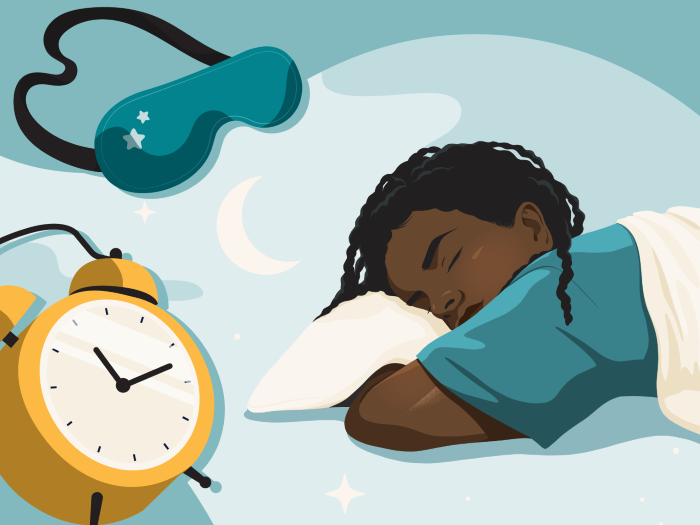What are Dreams – and What Do They Tell Us?

Everyone loves to dream, but have you ever wondered what causes our minds to create these strange, vivid stories and what hidden meanings might lie beneath the surface? Dreams have remained a fascinating subject for centuries, even once considered to be messages from the gods. While they can be random, chaotic, or surreal, modern neuroscience suggests they may hold a deeper significance. Dreams often reflect our subconscious worries and emotions. Whether fuelled by physiological sensations or rooted in our innermost fears, dreams provide a glimpse into our minds, revealing complexities that remain vastly unknown.
Scientists today still cannot pinpoint exactly what causes dreams, but in the article “Why Do We Dream?” Michelle Drerup, PsyD, DBSM, explains that dreaming occurs mostly during REM (rapid eye movement) sleep. Experts believe that dreams stem from the forebrain, while the brainstem generates REM sleep. During REM sleep, our brainwaves are almost as active as when we are awake. This activity generates sensory experiences that feel vivid or lifelike, which may consolidate memories, process recent experiences, or simulate real-life situations. Dreaming is the brain's ability to simulate experiences without external sensory input. While we sleep, our sensory processing areas remain active, creating dreams without actually hearing or seeing anything. Other theories suggest that dreams involve the processing of emotions or unresolved thoughts, allowing dreams to act as a safe space where we can navigate complex or conflicting emotions in an abstract way. Therefore, experts believe dreams can help the brain regulate mood and maintain psychological balance.
Have you ever wondered why you dreamt about losing your teeth, falling, flying, being unprepared for an exam, or being chased? Why do so many of us share similar dreams, and what do they really mean? The website Amerisleep conducted a survey with over 2,000 people across the U.S, 53.5% stated they had experienced the heart-pounding dream of falling. An article on SleepFoundation.org states that 39% of people have had dreams about their teeth falling out, rotting, or breaking at least once. This article suggests several reasons for this type of dream. For example, losing teeth might symbolise the recent loss of something important. In real life, teeth are vital and used daily to eat, so the loss of them would be traumatic. In our dream worlds, the loss of teeth may signify the loss of something significant. Another cause is increased stress; a negative dream about losing teeth could be seen as stress-related. During the start of the COVID-19 pandemic, bad dreams became more frequent as lives were disrupted, making the future feel uncertain. Others suggest that teeth grinding at night may cause the brain to incorporate that sensation into a dream. Many of these common dreams appear during high-stress times, highlighting unprocessed anxieties or changes in life. Interpretations of these dreams vary widely, but they tap into universal human fears, emotions, and physical sensations, making them common worldwide.

But why do some dreams stick with us for life while the memory of others fades as soon as we open our eyes? What makes dreams so vivid? Scientists believe that the heaviest dreaming occurs during REM sleep, which cycles every 90 minutes with dreams lasting up to half an hour. The website Healthline states that even without knowing the exact cause of vivid dreams, they can be linked to factors such as stress or anxiety, sleep disorders, medications, or substance use. Occasional vivid dreams are harmless and may simply linger in your memory. However, frequent negative vivid dreams can be disturbing and disruptive, leading to side effects like daytime sleepiness, mood issues, or even a reluctance to sleep. Although intense dreams can sometimes affect us deeply, there are times when we wake up to only fragments of a dream and struggle to piece it together. That disappointing feeling of not remembering your dream is common, and it happens to us all. But just because you can’t remember a dream doesn’t mean it didn’t happen. Often, if a dream isn’t particularly memorable or your sleep lacked sufficient REM stages, you won’t remember it.
Do you want to dream more? Enhancing your sleep experience involves improving sleep quality and adopting certain habits to encourage REM sleep. Here are a few tips to get you dreaming:
- Maintain a regular sleep schedule; consistency increases your chances of achieving deep sleep stages, like REM, where dreaming takes place.
- Refine your sleep environment. Cooler temperatures promote sleep, and a quiet, dark setting helps prevent disruptions, allowing you to enter REM sleep smoothly.
- Wind down before bed by reducing screen time, avoiding caffeine, and try out some relaxing activities like meditating or reading.
- Try small doses of supplements like melatonin to regulate sleep cycles, or vitamin B6, which is said to promote dream vividness and recall.
Another interesting technique is waking up at specific times for REM re-entry. Most REM cycles last around 90 minutes, so waking up naturally or setting an alarm for 90-minute intervals can make it more likely for you to remember your dream. Happy dreaming!
